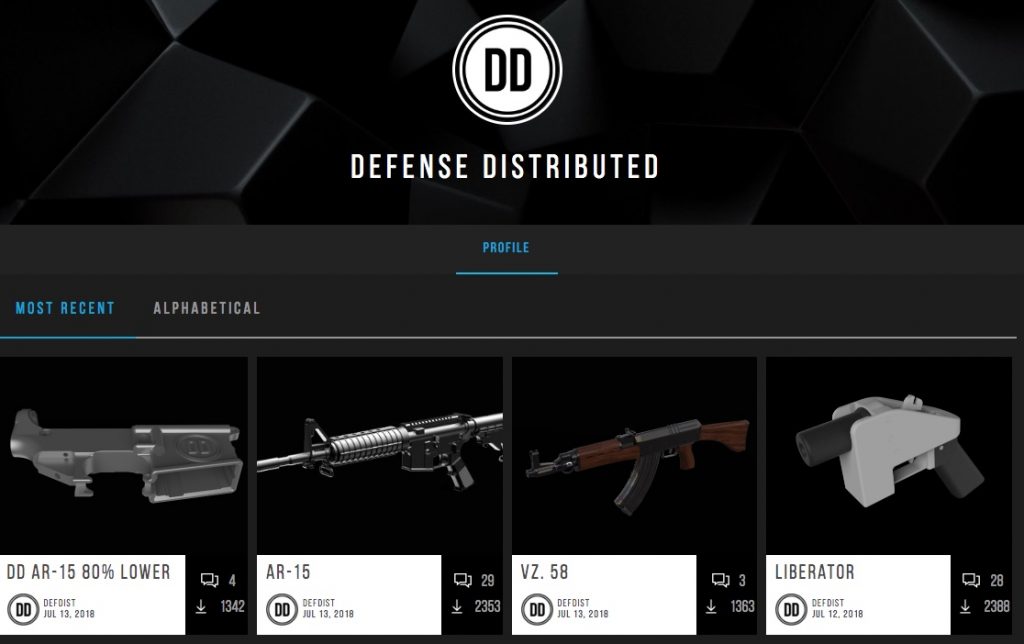The path to a cryptocurrency revolution might just run through a sleepy Austin, Texas industrial park, home to offices of Cody Wilson and his company, Defense Distributed in the United States. Parallels exist between downloadable files from a website, allowing users access to 3D printable firearms, and a permissionless, decentralized, censorship-resistant medium of exchange. If the world’s most powerful government succeeds in preventing Mr. Wilson from engaging in basic speech, hold on to your electronic wallet because it could be next.
Also read: Report: 15,000 Twitter Crypto Scam Giveaway Bots
You Are Responsible Enough to Read Unapproved White Papers and Controversial Firearm Schematics
The fate of cryptocurrency’s future could very well rest in the hands of a 30-year-old former law school student who has been called The Most Dangerous Man in the World by Wired magazine. No one could have foreseen this, of course, least of whom Satoshi Nakamoto when he delivered his white paper, Bitcoin: A Peer-to-Peer Electronic Cash System not quite a decade ago.
In it, the pseudonymous author went about detailing technical aspects of a trustless digital cash system with a decentralized audit log, a database conferring immutability for transaction recordings. The history is well known by most Bitcoiners, and today an entire universe of variations on that Bitcoin theme have sprouted.

They’ve done that because, for the most part, a healthy portion of the world has access to critical information regarding cryptocurrencies. And it is a universe unto itself: initial coin offerings, alternative coin projects, tokenizing, blockchain technology, speculation, exchanges, crypto loan products, etc. The list is virtually endless. What is in store for decentralized, digital money is in large measure up to how governments react.
A sizeable number of enthusiasts will suggest there is no scenario by which crypto can be completely snuffed out. This is true as far as we understand at the moment. It is always dangerous to underestimate the power of government, however. A few twists and legal turns here, a few draconian laws there, and, yes, even Bitcoin could be stifled, albeit not killed outright – the genie is surely too far from the bottle now for Bitcoin to be snuffed out.
Cody Rutledge Wilson is Satoshi Nakamoto
Governments have every incentive to make life hard for Bitcoiners, even if such policies seem largely benign at the start. If cryptos gain adoption on a massive scale, it is not inconceivable that crackdowns could begin. In the United States this will happen under the pretext and ruse of its legal system. The media, always looking to be law enforcement’s lapdog, may dutifully portray those who dabble in crypto as criminals or worse. It’s not difficult to see this already happening in pockets of the US.
All it will take is precedent, a legal prosecution upholding the idea some thoughts are too dangerous to allow digitally. If said thoughts are too contrary to government whim, and courts agree, applying a vague standard of censorship, it could have major ramifications for cryptocurrency adoption.

That standard already has one puzzle piece: Ross Ulbricht and Silk Road. Mr. Ulbricht, when all was said and done, was convicted for operating a website where illegal goods and services exchanged. He was given two life sentences, and without the possibility of parole. Have a website where people engage with it and wind up doing something illegal, and the publisher/owner is on the hook for legal consequences.
Enter Cody Rutledge Wilson, the notorious cryptoanarchist in Austin, Texas who shocked the world five years ago when he squeezed off the first shot from a printed plastic 3D mold. At the time, Mr. Wilson was considered a nuisance, an attention-seeker whose weapon, The Liberator, was thought to be irresponsible at most. Just as quickly, however, the US Department of State sought jurisdiction over Mr. Wilson’s project.
Cody Rutledge Wilson is Julian Assange
The bureau sent a cease and desist order to Mr. Wilson and his nascent company, Defense Distributed. The letter briefly explained hosting downloadable 3D gun files would be in violation of an international arms act. Mr. Wilson immediately cooperated, taking down CAD files which by that time had been downloaded some 100,000 times.
He was subsequently interviewed by authorities, and sent on his way as an ideological crank. He has never been arrested. He has never been charged with a crime. After waiting years for clarification on the substance of the State Department letter, Mr. Wilson lawyered up and went proactive. He sued the federal government on two grounds: First Amendment speech and Second Amendment right to keep and bear arms.

In the United States, the first ten amendments to its constitution are known as the Bill of Rights. They were a compromise to get the constitution ratified back in the late 18th century, assuring skeptical states the federal government would be kept in check on critical issues. The First Amendment begins “Congress shall make no law ….” No law. Not one. Not three because three is a small number. Not a few because, gosh, things are bad. No. Law. Essentially five basic freedoms flow from it: religion, speech, press, assembly, petition. Speech was considered so central to the US founding it was among the first freedoms congress (lawmakers) were prevented from abridging. No. Law.
The Second Amendment is particular to the US in that it has been interpreted to mean a citizen has the right to own firearms, something most governments are loath to admit. More mainstream groups over the years have attempted to champion gun sports and hunting as viable reasons to have such access, but let us no longer mince words: the Second Amendment exists to enable citizens to shoot corrupt government officials. Governments might have overwhelming armaments and technology, but resistance to tyranny has been won with far less. Gun control simply means persons in government costumes with guns will stop others from possessing certain firearms, and, if successful in this case, even so much as reading about them.
Freedom.Bitcoin.com
On August 1st of this year, Mr. Wilson again published firearm files on the Defense Distributed website. He was able to do that because after agonizing legal arguments and court battles, the federal government knew they would ultimately lose on the merits. So they did the next best thing, considering. They struck a deal with Mr. Wilson. He would be able to host those files. Almost immediately, states’ Attorneys General filed injunctions, once again, to have the files removed. Mr. Wilson complied, even after having a formal agreement in place. It appears each state, or most of the 50, will come after Mr. Wilson one at a time, attempting to ruin him financially. They want Cody Wilson to give up and go away.
There will be many attempts to manipulate this issue, many ways to frame it for the broader public and opportunistic politicians. It is beyond understandable to be wary of guns, to associate them with vicious forms of violence. A lot of Bitcoiners are enthusiasts because crypto is such a peaceful pursuit. To read decentralized money is on par with decentralized firearm access could be unsettling at first. And readers might need time to chew on the idea before coming fully onboard. Perhaps as readers are reminded by the hectoring of friends, family, government officials, “Why do you need cryptocurrency? We already have digital money backed by the country! Why do you get to be your own bank? Shouldn’t banks have the right to know what you’re doing with that money? Everyone should pay their fair share in taxes, including cryptocurrency users!” they’ll begin to see how ominously close digital assets are to digital firearm files.

No need to become a raging gun nut. No need to even own a gun. The key principle is no person should have the power to take that choice away from someone else. And, yes, Bitcoin.com is a business, and we’re working night and day to bring about more economic freedom to the world through bitcoin cash. Our corporate mission is to also work toward a less coercive, more voluntaryist community.
Censorship is particularly odious because it robs people of thought, new ideas, inquiry, the science of innovation. We believe you’re smart enough, good enough to handle reading a firearm blueprint should you be so inclined. So should everyone else. We believe you’re smart enough, good enough to handle being your own bank, deciding with whom you wish to trade. So should everyone else.
OP-ed disclaimer: This is an Op-ed article. The opinions expressed in this article are the author’s own. Bitcoin.com does not endorse nor support views, opinions or conclusions drawn in this post. Bitcoin.com is not responsible for or liable for any content, accuracy or quality within the Op-ed article. Readers should do their own due diligence before taking any actions related to the content. Bitcoin.com is not responsible, directly or indirectly, for any damage or loss caused or alleged to be caused by or in connection with the use of or reliance on any information in this Op-ed article.
Do you think it’s important to support projects like Defense Distributed? Let us know in the comments section below.
Images via Pixabay.
Be sure to check out the podcast, Blockchain 2025; latest episode here. Want to create your own secure cold storage paper wallet? Check our tools section.
The post Bitcoin is a Permissionless, Decentralized Firearm: Cody Wilson is Satoshi Nakamoto appeared first on Bitcoin News.
Powered by WPeMatico

